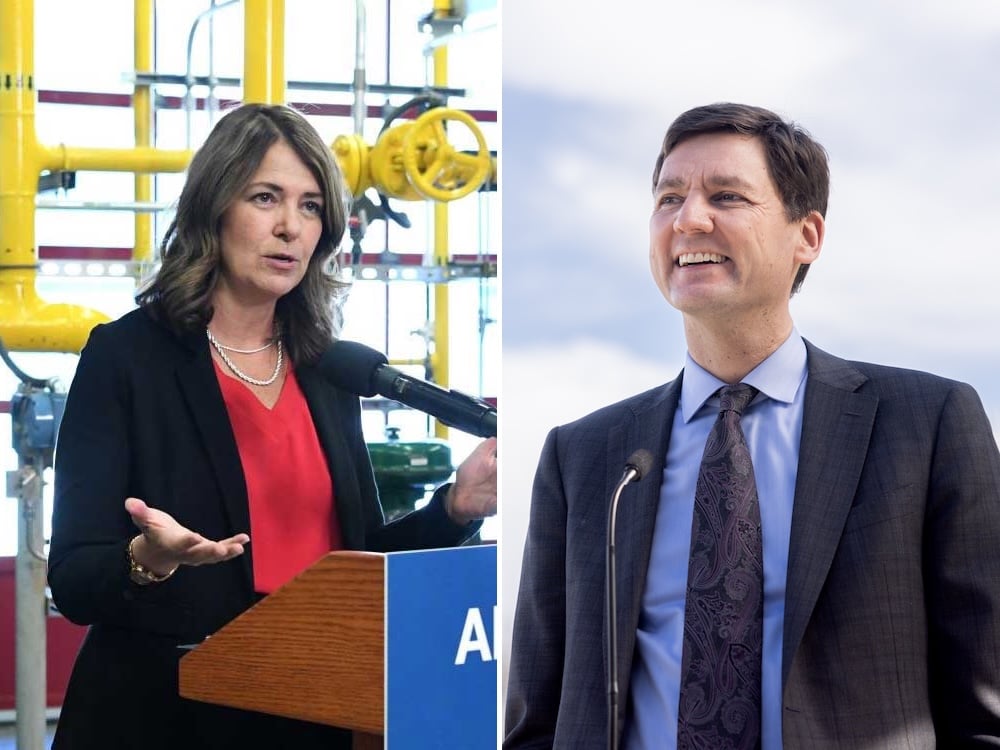Top Stories
Eby Rejects Smith’s Pipeline Proposal, Citing Environmental Risks

British Columbia Premier David Eby has firmly rejected a proposed pipeline plan that aims to increase tanker traffic from a new northern terminal. The proposal, championed by Natural Resources Canada, has sparked significant debate regarding its environmental implications. Eby emphasized the potential risks to coastal ecosystems and communities in a statement released on March 15, 2024.
The plan, associated with the Trans Mountain Pipeline, seeks to expand oil transport capacity to meet growing market demands. Proponents argue that the project could bolster local economies and create jobs. However, Eby countered these arguments, highlighting the significant environmental hazards linked to increased tanker traffic along the BC coast.
Concerns Over Environmental Impact
Eby’s concerns are echoed by environmental groups and local First Nations. They argue that the risks of oil spills and increased greenhouse gas emissions pose a threat to marine life and coastal habitats. Eby stated, “We cannot prioritize short-term economic gains over the long-term health of our environment and communities.”
The Premier’s comments come as discussions intensify regarding Canada’s energy strategy. Advocates for the pipeline assert that it is essential for energy security and economic growth. However, Eby maintains that the government must prioritize sustainable practices in its energy policies.
According to reports, the proposed terminal would facilitate the shipment of over 300,000 barrels of oil per day. This volume raises alarms among environmentalists who warn of potential catastrophic impacts on the Pacific Ocean’s delicate ecosystem. Eby’s administration is committed to exploring renewable energy alternatives, aiming for a balanced approach that prioritizes both economic development and environmental stewardship.
Political Ramifications
The rejection of this proposal could have significant political ramifications. Eby’s stance may resonate with voters concerned about climate change, potentially bolstering his administration’s credibility among environmental advocates. On the other hand, it could alienate segments of the population focused on economic recovery and job creation through resource development.
The debate over the pipeline reflects broader tensions in Canada regarding energy policy and environmental responsibility. As public opinion continues to evolve, the implications of Eby’s decision may influence future energy projects across the nation.
In conclusion, the rejection of the pipeline plan marks a pivotal moment in British Columbia’s energy policy. With increasing scrutiny on environmental issues, Eby’s commitment to sustainability will likely shape the province’s direction in the coming years. The government now faces the challenge of balancing economic needs with the imperative to protect the environment.
-

 Education3 months ago
Education3 months agoBrandon University’s Failed $5 Million Project Sparks Oversight Review
-

 Science4 months ago
Science4 months agoMicrosoft Confirms U.S. Law Overrules Canadian Data Sovereignty
-

 Lifestyle3 months ago
Lifestyle3 months agoWinnipeg Celebrates Culinary Creativity During Le Burger Week 2025
-

 Health4 months ago
Health4 months agoMontreal’s Groupe Marcelle Leads Canadian Cosmetic Industry Growth
-

 Science4 months ago
Science4 months agoTech Innovator Amandipp Singh Transforms Hiring for Disabled
-

 Technology4 months ago
Technology4 months agoDragon Ball: Sparking! Zero Launching on Switch and Switch 2 This November
-

 Education4 months ago
Education4 months agoRed River College Launches New Programs to Address Industry Needs
-

 Technology4 months ago
Technology4 months agoGoogle Pixel 10 Pro Fold Specs Unveiled Ahead of Launch
-

 Business3 months ago
Business3 months agoRocket Lab Reports Strong Q2 2025 Revenue Growth and Future Plans
-

 Technology2 months ago
Technology2 months agoDiscord Faces Serious Security Breach Affecting Millions
-

 Education4 months ago
Education4 months agoAlberta Teachers’ Strike: Potential Impacts on Students and Families
-

 Education3 months ago
Education3 months agoNew SĆIȺNEW̱ SṮEȽIṮḴEȽ Elementary Opens in Langford for 2025/2026 Year
-

 Science4 months ago
Science4 months agoChina’s Wukong Spacesuit Sets New Standard for AI in Space
-

 Business4 months ago
Business4 months agoBNA Brewing to Open New Bowling Alley in Downtown Penticton
-

 Business4 months ago
Business4 months agoNew Estimates Reveal ChatGPT-5 Energy Use Could Soar
-

 Technology4 months ago
Technology4 months agoWorld of Warcraft Players Buzz Over 19-Quest Bee Challenge
-

 Business4 months ago
Business4 months agoDawson City Residents Rally Around Buy Canadian Movement
-

 Technology4 months ago
Technology4 months agoFuture Entertainment Launches DDoD with Gameplay Trailer Showcase
-

 Technology2 months ago
Technology2 months agoHuawei MatePad 12X Redefines Tablet Experience for Professionals
-

 Top Stories3 months ago
Top Stories3 months agoBlue Jays Shift José Berríos to Bullpen Ahead of Playoffs
-

 Technology4 months ago
Technology4 months agoGlobal Launch of Ragnarok M: Classic Set for September 3, 2025
-

 Technology4 months ago
Technology4 months agoInnovative 140W GaN Travel Adapter Combines Power and Convenience
-

 Science4 months ago
Science4 months agoXi Labs Innovates with New AI Operating System Set for 2025 Launch
-

 Technology4 months ago
Technology4 months agoNew IDR01 Smart Ring Offers Advanced Sports Tracking for $169










